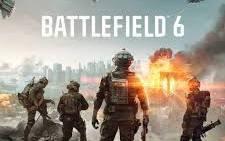A sense of cautious optimism is starting to take hold within the Battlefield community, largely driven by insights from veteran developer David Sirland, who experienced firsthand the challenges of developing and launching Battlefield 2042. His confidence in the future stems not from marketing promises but from the difficult lessons learned during that turbulent release. Having endured what he describes as a “brutal” period, Sirland believes the team is now far more equipped to avoid repeating the same mistakes. For long-time players seeking a return to the franchise’s core strengths, this renewed focus feels much like the foundation for meaningful improvement, and some fans even see potential benefits in complementary services like Battlefield 6 Boosting to enhance their experience when the new title arrives.
To understand this optimism, it’s worth looking back at where things went wrong. Battlefield 2042 launched with severe gameplay and technical problems—widespread bugs, erratic performance, and, perhaps most damaging, a lack of iconic features that had defined Battlefield for years. The decision to replace the long-standing Class system with Specialists was a pivot aimed at chasing the popularity of hero shooters such as Apex Legends and Overwatch. However, this move disrupted the delicate balance of the series’ team-based dynamic.
- The Specialist Issue: The open-ended loadouts and unique gadgets undermined class-driven strategies by blurring squad roles, leaving matches feeling chaotic rather than coordinated.
- Missing Legacy Features: Foundational tools like a scoreboard, server browser, or global chat were missing at launch, creating the impression of an unfinished experience.
- Technical Shortcomings: Bugs, server instability, and poor optimization alienated players before they could adapt to design changes.
Over the months following release, DICE worked to restore the experience—reintroducing a refined Class system, rebuilding maps for more balanced combat, and adding long-requested quality-of-life features. While these updates improved the game substantially, the launch damage had already impacted player trust. Yet, according to Sirland, this process of gradual repair has acted as a real-world form of research and development for the franchise’s future.
For the next Battlefield, the direction is reportedly far clearer. The development team now has a solid understanding of what players expect, shaped by years of feedback. Instead of chasing fleeting trends, they are focusing on the series’ identity: massive battles, combined arms warfare, dynamic destruction, and team-focused strategy.
Core Improvements Expected in the Next Battlefield
| Core Principle | Impact on Battlefield 2042 Launch | Planned Approach for Next Game |
|---|---|---|
| Class-Based Gameplay | Removed in favor of Specialists, weakening role-based teamwork. | Return to a well-defined Class system to reestablish tactical depth and role synergy. |
| Destruction and Interactivity | Reduced destructibility compared to earlier titles. | Focus on large-scale, meaningful destruction to enhance sandbox gameplay. |
| Squad and Team Integration | Lacked communication tools and squad management systems. | Prioritize in-game tools for coordination, including improved comms and role visibility. |
| Legacy Features and Polishing | No scoreboard, server browser, or traditional campaign at launch. | Launch with core features included to set a complete, polished standard. |
The “player-first” approach now being emphasized comes directly from these lessons. The extended recovery effort for 2042 demonstrated that DICE can listen and implement community-driven changes, but also highlighted that these adjustments must be present from day one in future releases. A well-prepared launch is not just about playable maps—it’s about trust, stability, and familiarity for the fanbase.
In addition, the upcoming entry is being co-developed by multiple studios: DICE, Ripple Effect, and Criterion. This collaboration aims to create a connected Battlefield universe, but early indications suggest the initial focus is less about sprawling innovation and more about getting the fundamentals right. By reestablishing its identity and respecting the franchise’s heritage, Battlefield has the opportunity to win back players who felt left behind by 2042’s missteps.
For series veterans, the optimism shown by Sirland offers hope that 2042’s troubled launch was not wasted effort but a necessary step in understanding what works—and what doesn’t—for the franchise. If these core principles are followed, the next Battlefield could arrive as a more complete and satisfying experience. For those planning to immerse themselves fully from day one, considering additional support options such as Battlefield 6 Boosting buy might be a compelling way to maximize that return to form.

